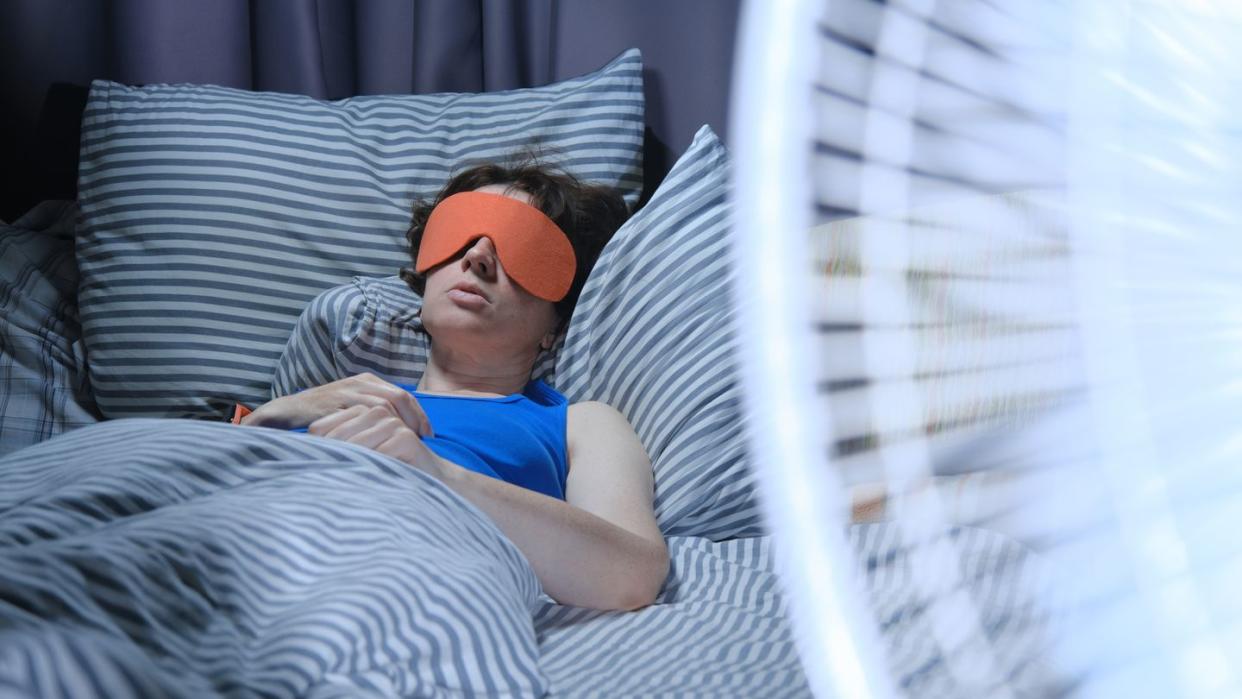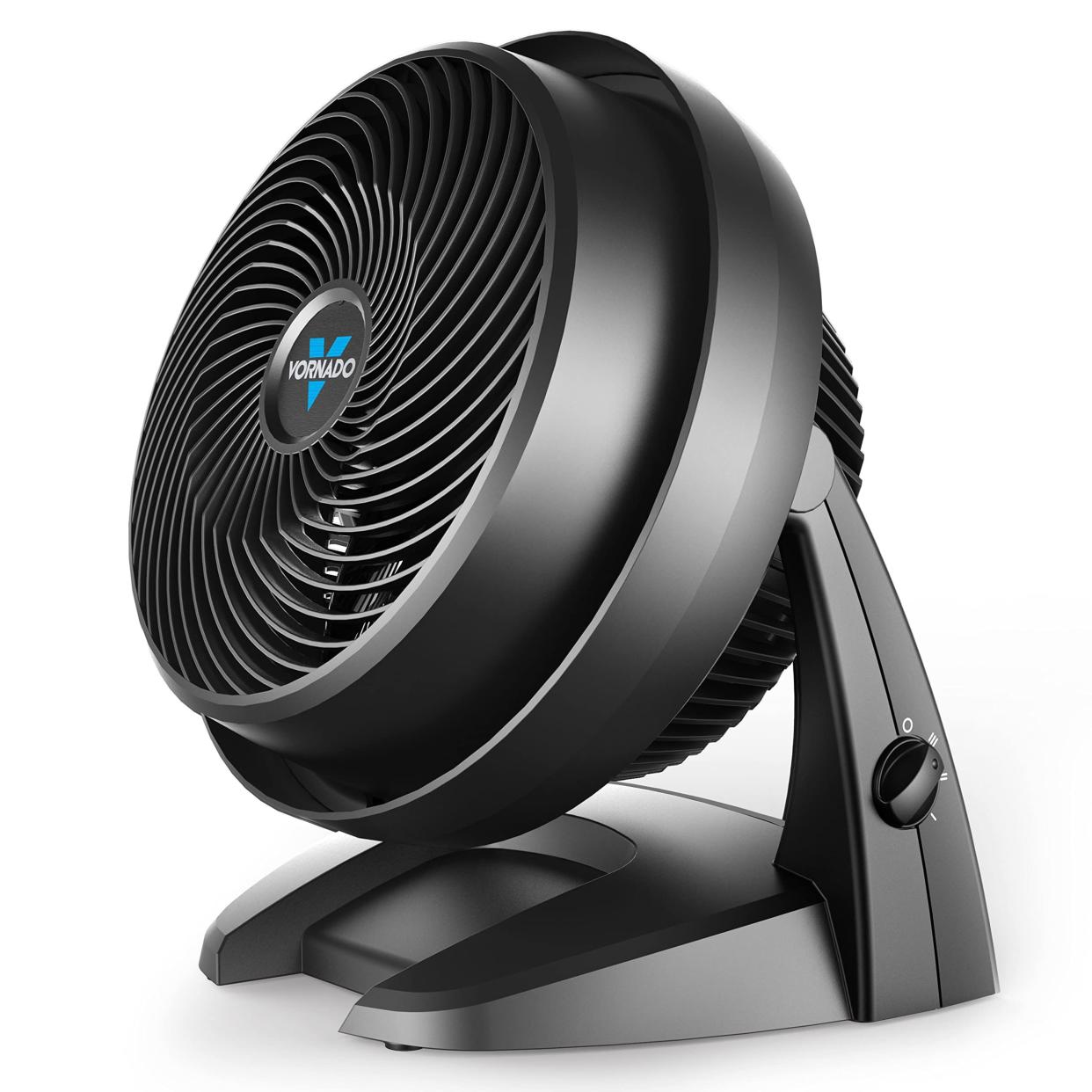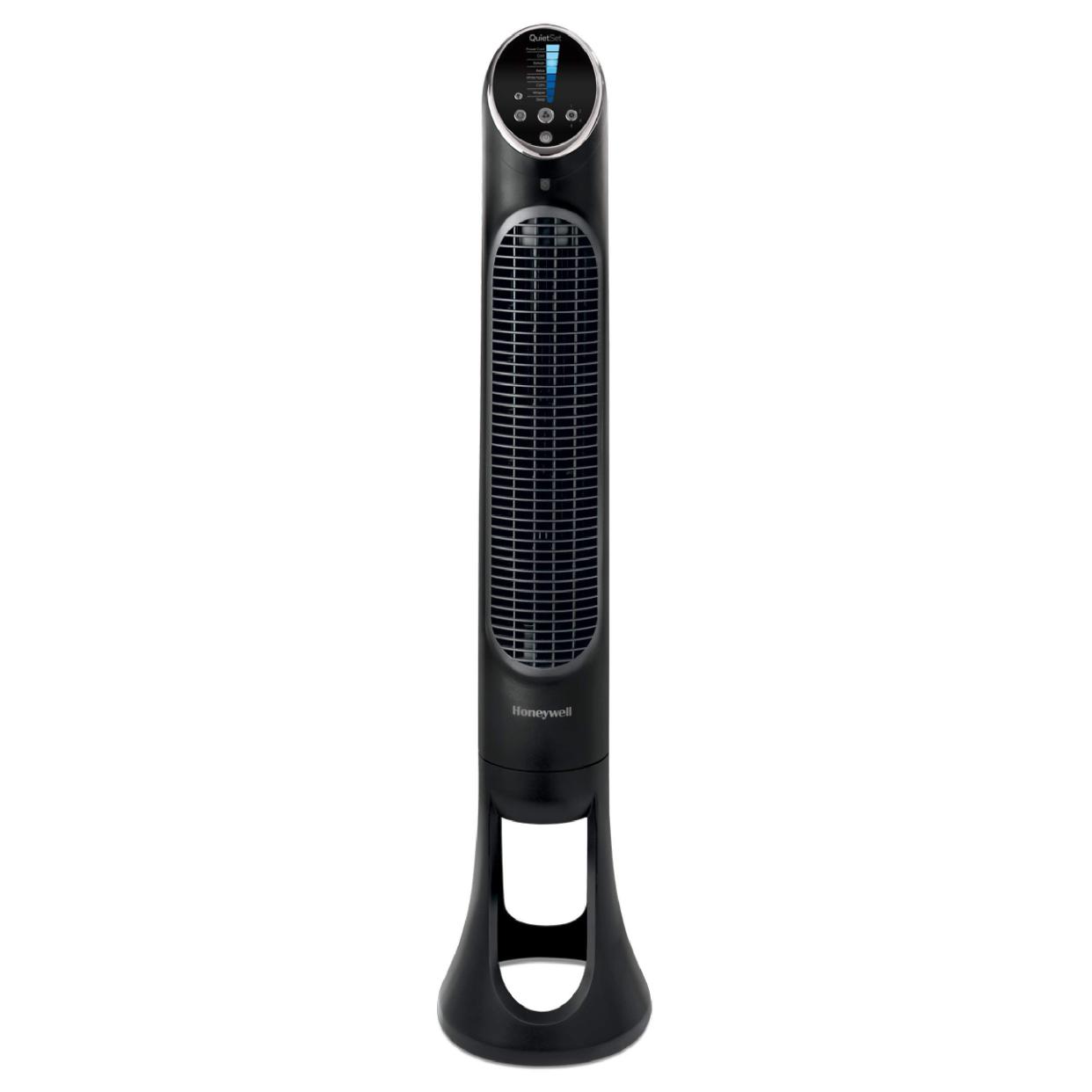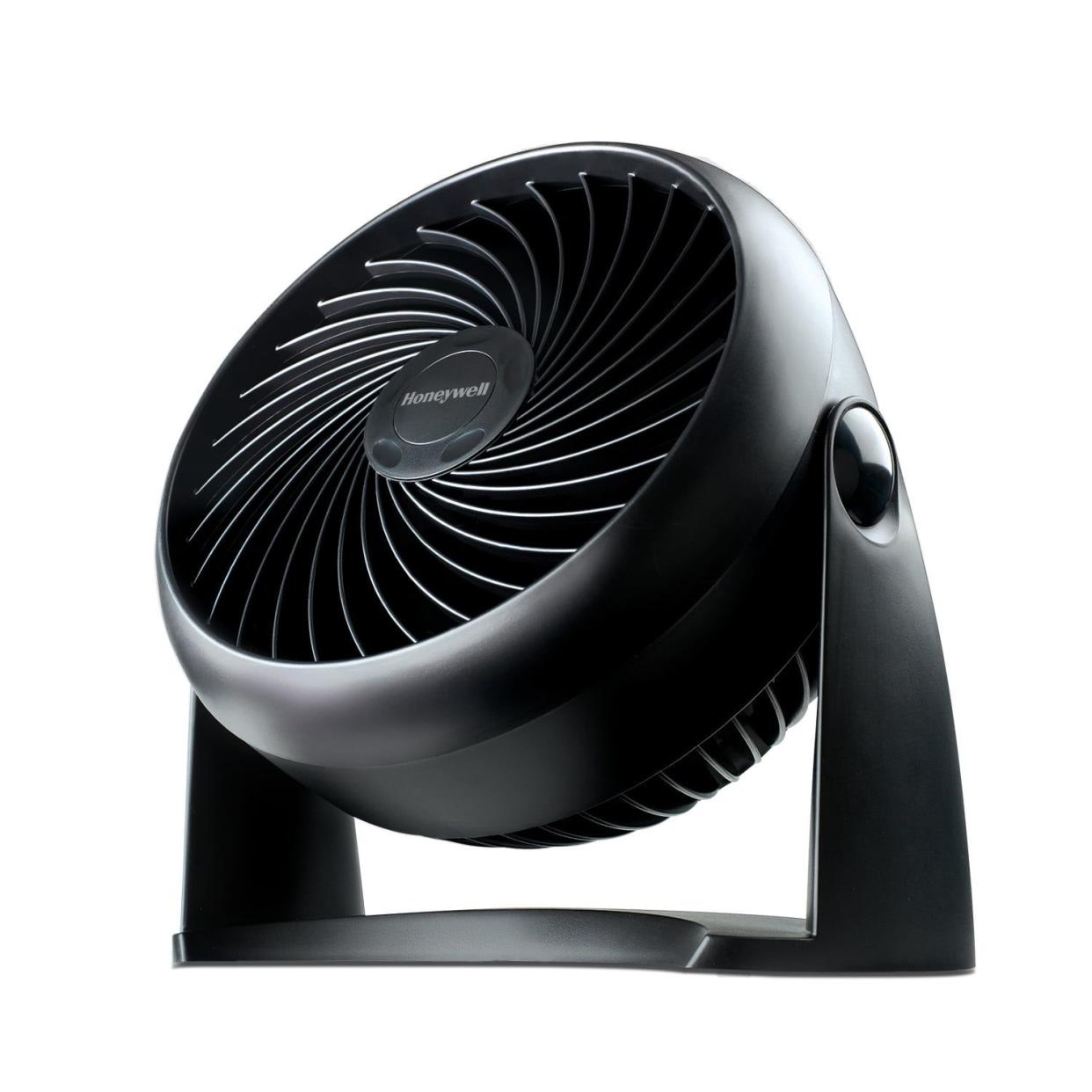Wait, Can Sleeping With a Fan on Make You Sick?

"Hearst Magazines and Yahoo may earn commission or revenue on some items through these links."
[table-of-contents] stripped
If you live in an apartment that tends to get overheated in the winter, or a house that can’t seem to cool off properly in the summer, a fan blowing cool air through the room can be your favorite sleep-time accessory. But you may have heard some buzz on social media that sleeping with a fan can be hazardous for your health — so is that true?
“Like many things when it comes to your sleep, it may come down to personal preference, health conditions and experience,” says psychiatrist and sleep medicine specialist Chester Wu, MD, a medical reviewer with Rise Science, who suggests using a sleep tracker to evaluate whether sleeping with a fan is helping or hurting your sleep.
But, of course, sleeping with a fan has pros and cons. Below, we're evaluation the potential health benefits and side effects that you may want to keep in the back of your mind before you snuggle into bed.
Health benefits
Cooler temperature means better sleep. If you’ve ever spent the night in an older house without A/C, tossing and turning and kicking off the sheets until you realized there was an old-fashioned ceiling fan with a pull string overhead, you know how a good fan can really regulate the temperature in the room, helping you fall asleep. This is partially because sleep is initiated by a natural drop in body temperature, says Dr. Wu. “Research shows that a cooler room temperature — around 65 to 68°F, but as low as 60 — promotes more restorative sleep by helping to lower your body temperature,” he explains. Dr. Wu adds that a fan can stave off excessive sweating, which can disrupt your sleep. This is especially true if you are a woman in midlife. Due to the fluctuations in hormones, as many as 80% of menopausal women suffer from night sweats, which can make sleeping through the night an exercise in frustration. If you are missing out on a good night’s sleep due to vasomotor symptoms, talk to your doctor about solutions, including hormone treatments, but meanwhile, “a fan can help lower the room temperature and can create a breeze can help with vasomotor symptoms in women experiencing menopause,” says Natalie Dautovich, PhD, Environmental Fellow at the National Sleep Foundation.
The noise can lull you to sleep. Whether it’s cars honking, radios playing or owls hooting, there may be some kind of kerfuffle outside your windows keeping you awake. The soft hum of a fan can act as white noise, masking the more sleep-disturbing sounds. Though Dr. Wu points out that for some people, the sound of the fan can actually backfire: “There is mixed evidence on the impact of white noise on sleep quality, however, indicating that personal preference plays a significant role. Some people may find this noise soothing, while others may find the same noise disruptive.”
Side effects
It can irritate your allergies: If you’re allergic to dust mites, pet dander or mold, there is the possibility that a fan may circulate those allergens around the room, causing you to sniffle and sneeze, especially if the fan is not cleaned regularly, says Purvi Parikh, MD, an allergist at NYU Langone Health. “For animal dander and mold spores, HEPA air purifiers are best to reduce allergen exposure at night,” she says. “If you do use a fan, make sure to keep it clean so it doesn’t accumulate allergens and blow them your way.” She also recommends putting dust-mite proof covers on your mattress, box spring and pillows to reduce exposure and taking a long-acting antihistamine before bed.
It can dry out the air: In some cases, the movement of the air around the room may cause some dryness to your skin, eyes and mouth, says Dr. Wu. That could explain why you experience a sore throat, stuffy nose or cough when you use one.
What kind of fan to use
There are many kinds of fans to consider, including ceiling fans, floor fans and table fans. Look for one that is sturdy and energy-efficient, and if possible, listen to it running before you purchase to assess whether the noise will put you to sleep or irritate you into staying up. You should also consider which features you are willing to pay extra for, such as oscillation, remote operation, smart technology integration, and automatic shutoff. Finally, make sure it is easy to clean — if you have to climb a ladder to your cathedral ceiling to dust any lingering particles off the fan, you may want to choose a more accessible model.
Mid-Size Whole Room Air Circulator Fan

Mid-Size Whole Room Air Circulator Fan
amazon.com
$69.99
QuietSet Whole Room Tower Fan

QuietSet Whole Room Tower Fan
amazon.com
$53.99
Black Turbo Force Power Table Fan

Black Turbo Force Power Table Fan
walmart.com
$16.98
Other ways to stay cool at night
If a fan isn’t for you — or the noise keeps you up at night — there are plenty of other ways to stay cool while you sleep. Experts recommend these strategies:
Wear breathable, moisture-wicking pajamas.
Make up your bed in layers. “This can help your body to thermoregulate during the night,” says Dautovich. “If you share your bed with a partner, consider using separate bedding such as two twin comforters for a king-sized bed so that you can meet your own temperature needs.” Using cooling sheets can also help.
Take a hot shower or bath before bed. Dr. Wu says that while a hot soak may sound counterintuitive, it can help cool down your body once you’re out of the tub.
Avoid alcohol, heavy meals, intense exercise and caffeine before bed.
Consider investing in a cooling mattress or mattress topper.
Keep your bedroom dark: “Even low levels of light can disrupt sleep and result in feeling unrested the next day, says Dautovich. “A cave-like setting is an idea—but without the damp and with more comfortable bedding!” Blackout shades are an easy and affordable solution.
Bottom line: In the end, a fan is just a fan — if it helps you sleep better, then it’s good for you, if it doesn’t, then you might as well skip it. It’s a personal choice.
Why Trust Good Housekeeping?
Marisa Cohen, the author of this article, has written about health for more than 20 years for more than a dozen publications. She has extensively covered sleep, menopause, mental health, neurology, women's health, and chronic diseases. For this article, she interviewed two sleep experts and an allergist and looked at the latest research on sleep hygiene. She firmly believes that you should never believe anything you read on social media without doing your due diligence first.
You Might Also Like
